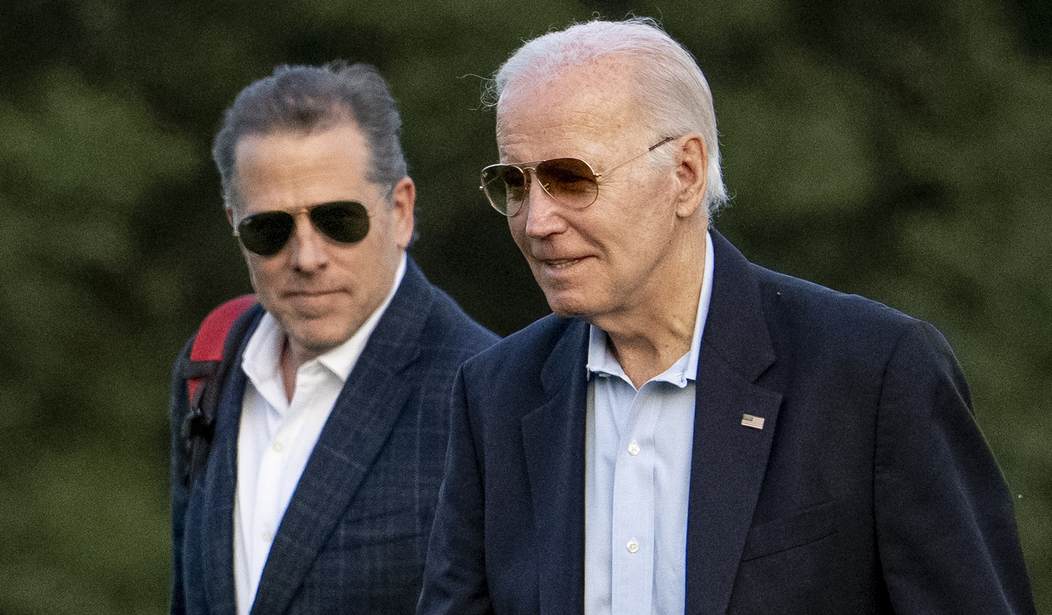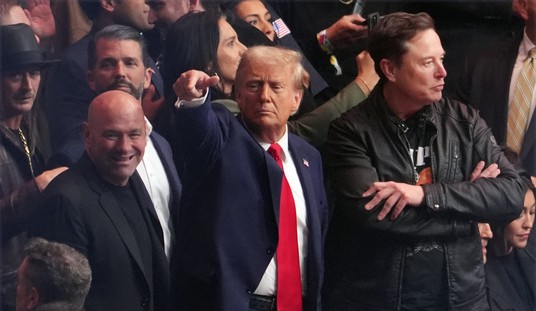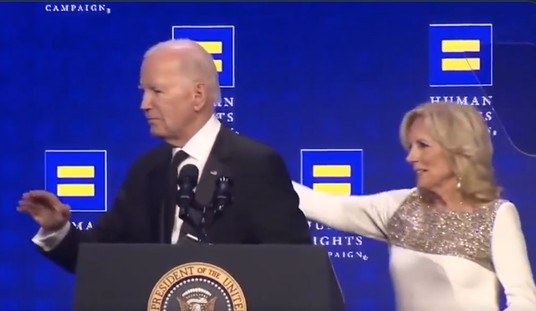Hunter Biden was just days away from a possible prison sentence due to two federal felony cases against him. Finally, we thought, President Joe Biden's wayward son was going to face justice, even if not the justice he likely deserves for allegedly peddling access to Joe when he was vice president, allegedly raking in tons of money for both Bidens.
Yet the lame-duck president issued a last-minute full and unconditional pardon of his son, setting off a firestorm across the country, including among more than a few Democrat politicians.
Let's first be clear: controversial presidential pardons aren't new.
Richard Nixon pardoned Jimmy Hoffa after the notoriously corrupt union boss had been convicted of fraud and bribery. President Gerald Ford pardoned Richard Nixon. Bill Clinton pardoned “fugitive financier” Marc Rich of tax evasion. Rich owed the IRS $48 million in taxes and had been charged with 51 counts of tax fraud. And now we add Joe's pardon of Hunter Biden to a list that will forever remain sullied.
A Few Salient Questions
Should presidents be stripped of pardon power?
If not, should the presidential power, granted by the Founders and enshrined in the U.S. Constitution, be reformed?
How difficult would it be to accomplish either of the above?
Whatever those answers are now or might eventually become, it's time for a national dialogue on presidential pardons while the iron is hot.
Alberto Gonzales, former U.S. Attorney General and White House Counsel under President George W. Bush, believes the power of the presidential pardon should remain.
The pardon power should remain with the president. A pardon is an act of clemency, an act of grace by the sovereign to be exercised in the good judgment of the sovereign for worthy cases.
There is serious debate about the ability of a president to issue a self pardon. Clarification of this issue may require a constitutional amendment. But legislation passed by the Congress could inform a court examining this issue.
The problem I have with the Biden pardon of his son is that he told the American people he would not pardon his son. This pardon makes that statement sound like a pure political statement.
Second, his statement implies the prosecution was politically motivated. That hurts the DOJ and gives credence to Trump assertions that prosecutions of the January 6 rioters were political.
Respectfully, I disagree with the former AG's last sentence.
Biden basically said in a statement announcing the pardon what Gonzales thinks he should've said; Joe just used a lot more words -- most of them bitter -- to say it. Either way, a majority of Americans, many of them Democrats, would still be outraged, even if not taking into account Biden's multiple lies that he wouldn't under any circumstances pardon his son, only to ultimately release the mother of all pardons.
READ MORE:
Popcorn Time: Dems in Disarray As Real Reason for Their Dismay Over Hunter Biden Pardon Is Revealed
Ironically, The American Prospect, a left-wing daily online and bimonthly print political and public policy magazine, declared in 2021 that it was time to end the presidential power because of then-President Trump's "extreme corruption in selling pardons," which "exposed an odd lapse in the Constitution."
Ahh, turnaround is sweet.
Moreover, in the slim chance that a left-wing Democrat is reading this article, please share an example of a pardon granted by Trump that comes anywhere near Biden's sweeping pardon of his son and all of the potential reasons Biden issued it. We'll wait.
Anyway, here's in part what The American Prospect said at the time (emphasis mine):
[The] process of clemency-for-sale not only makes a mockery of the pardon process and brings corruption to the highest level of government. It debases and demoralizes the criminal justice system. It is hard enough to bring white-collar fraudsters to justice without having your work destroyed by the president of the United States.
But Trump’s corruption is old news. Why should Republicans support constraining the presidential pardon power? Well, we can thank one William Jefferson Clinton.
Trump’s pardons were more flagrant, but Bill Clinton’s were also a disgrace. The worst was a midnight pardon given to a serial scoundrel named Marc Rich, who was a fugitive from justice hiding in Switzerland. Rich had been convicted of 51 counts of tax fraud, and has also been involved as a middleman in several corrupt Iraq oil deals. His former wife was a major benefactor to the Clinton presidential library.
And here's my favorite part:
Given the history and invitation to kickbacks in exchange for pardons, you never know which party will abuse the pardon power in the future. So there could be appetite for reform in both parties.
So that aged well, huh?
Back to my earlier questions
Changing or outright eliminating the presidential pardon requires a constitutional amendment.
First, a two-thirds vote of both the House of Representatives and the Senate is required to propose an amendment. Alternatively, two-thirds of the states can request a convention to propose amendments. Then, ratifying a constitutional amendment requires three-fourths of the states to do so, either through their legislatures or conventions in each state.
Given the political polarization in today's America, the chances of either of the above requirements happening is approximately zero percent. But what about reforming the presidential power?
Reforming the Power of the Pardon in the Age of Lawfare
A January 2, 2024, article published by Just Security -- which is also ironic in its obsession with the potential evil intentions of Trump in a second term -- posited that the presidential pardon could be reformed by Congress.
Members of Congress have introduced several bills designed to reform and constrain the pardon power. One bill, Abuse of the Pardon Prevention Act, would require the Justice Department and the president to provide Congress materials pertaining to the pardoned individual’s prosecution and pardon.
The bribery statute prohibits corruptly offering or promising anything of value to a witness with the intent to influence or prevent that witness’s testimony The bill would clarify that the law applies to the president and vice president, that it is an “official act” under the statute to grant a pardon or commutation, and that such a grant is a “thing of value” that would trigger the law’s application. Another provision would “declare presidential self-pardons invalid.”
There is reason to believe this legislation would withstand constitutional challenges.
While I'm not a constitutional lawyer, much less a constitutional scholar, it seems only reasonable that Congress could -- although I'm not saying it would -- curb or reform the pardon process. However, in our final irony, the question is whether congressional Republicans would climb aboard the presidential pardon-reform train, given that Trump will be in office for the next four years.
The Bottom Line
Were I to predict the future of the presidential power, I'd begrudgingly bet that nothing will change. Republicans and Democrats will alternately cry foul when a president of the other party makes sure to issue some controversial pardons.
That said, Joe Biden's full and unconditional pardon of his son Hunter will go down in history as a reminder of the injustice that exists in our non-perfect democracy. The lowercase "d" should be noted.














